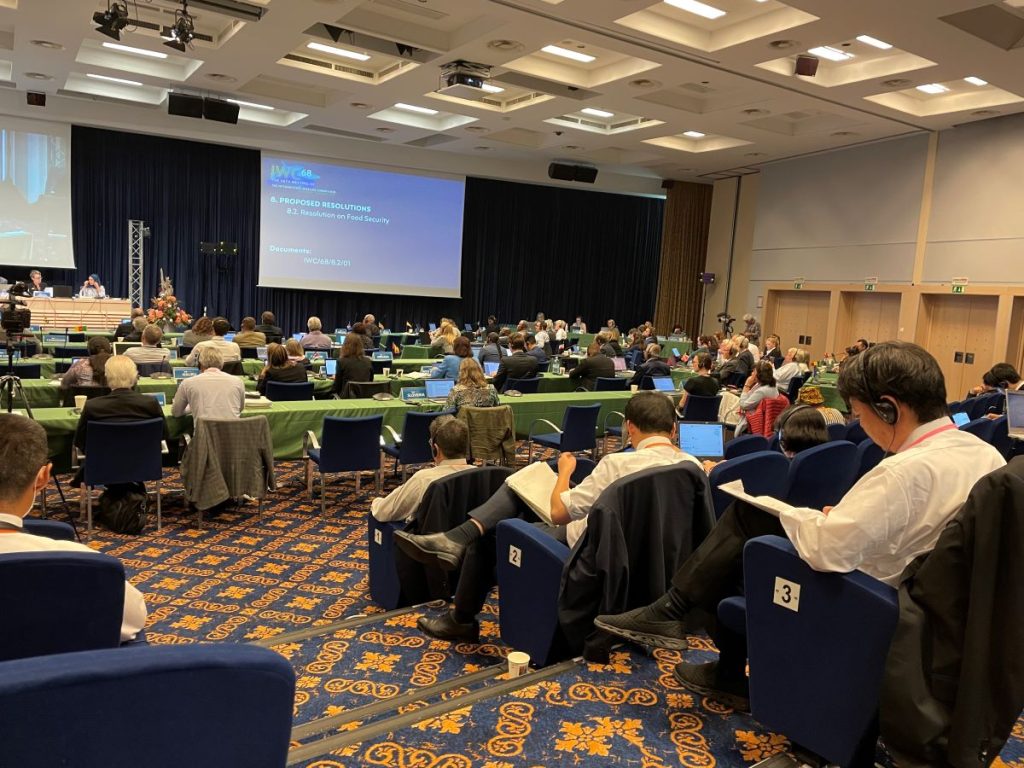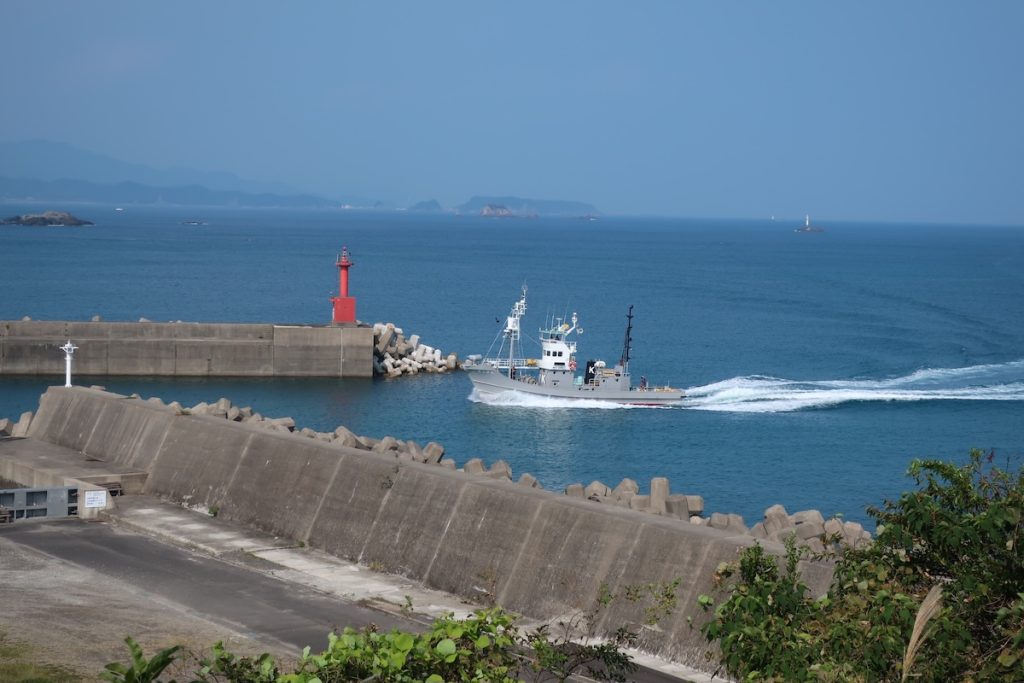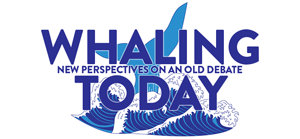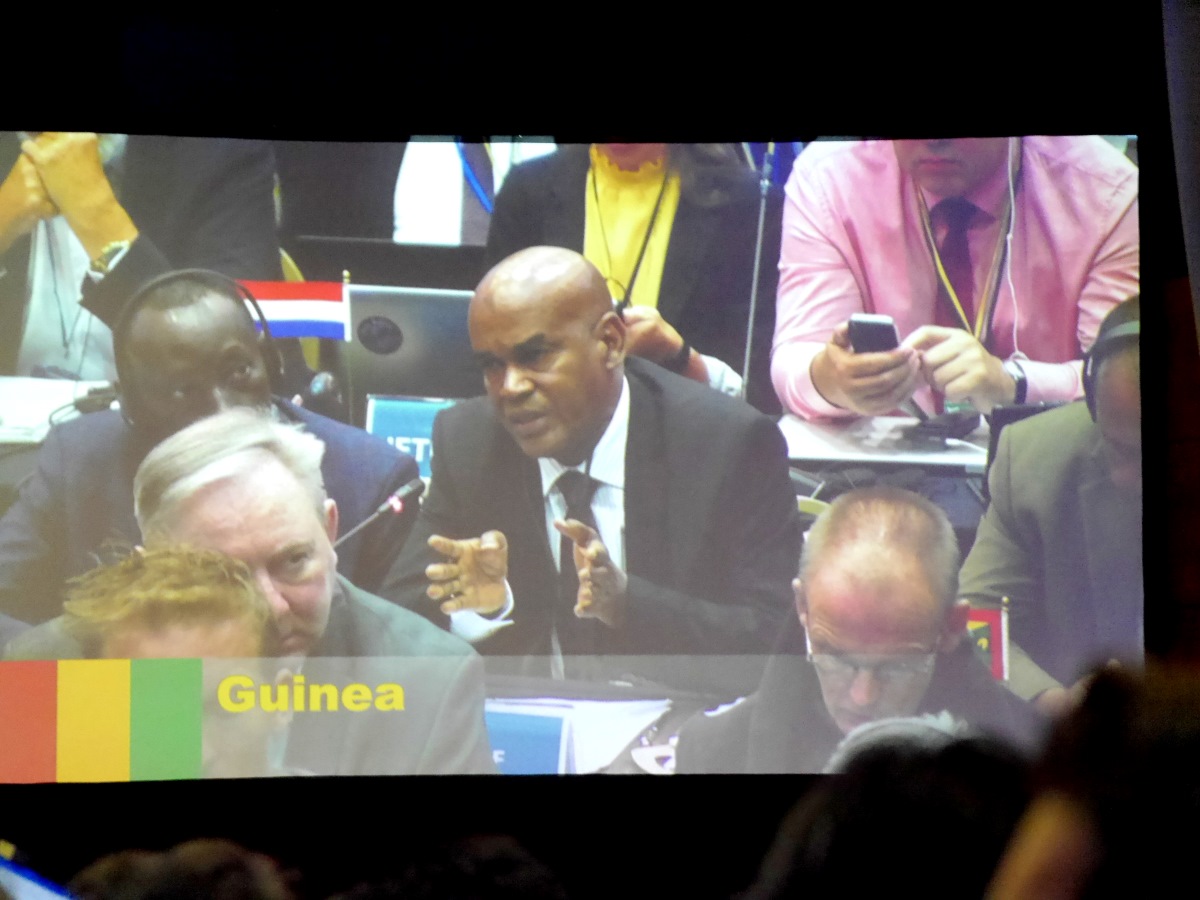Several member nations put resolutions on the International Whaling Commission’s agenda for IWC69. While these resolutions are nonbinding and require only a majority vote to pass, they provide insight into the commission’s trends and divisions. From attempts to create new international law and bind non-member nations to common-sense proposals addressing food security and subsistence use, there were several put forward at the commission’s meeting in Peru.
What do these resolutions tell us about the IWC’s member nations and the organization’s future?
Fourth of Five parts
First: IWC69 Report: Has the International Whaling Commission become a Zombie?
Second: IWC69 Report: Main IWC Agenda Items of the Session
Third: IWC69 Report: Catch Quotas and Sanctuary
Conclusion: IWC69 Report: What the Results Show Us
Reading the Trends by Nonbinding Resolutions
Resolutions at the IWC are legally non-binding and adopted by a simple majority vote. They are important, however, as they express the principles and policies of the IWC’s activities as an international organization. The following five draft resolutions were submitted for discussion at IWC69.
- Food security (proposed by developing countries that support sustainable use, including Ghana, Guinea, and Cambodia)
- Implementation of a conservation and management program for whale stocks aimed towards the lifting of the moratorium and orderly development of the whaling industry ( proposed by Antigua and Barbuda and Saint Lucia)
- Cooperation with the Commission for the Conservation of Antarctic Marine Living Resources (CCAMLR) in Antarctica (proposed by Hungary on behalf of the European Union)
- Synergies between IWC, the Kunming-Montreal Biodiversity Framework (GBF), and the Agreement on the Conservation and Sustainable Use of Marine Biodiversity in Areas Outside National Jurisdiction (BBNJ Agreement) (proposed by Hungary on behalf of the EU)
- International legal obligations in commercial whaling (proposed by Hungary on behalf of the EU)
Of these, two draft resolutions were adopted by consensus with minor amendments and without major conflicts of views. They are (1) on cooperation in Antarctica (which called for promoting cooperation between the IWC and CCAMLR) and (2) on biodiversity synergies between the IWC, GBF, and BBNJ agreements. Therefore, they will not be discussed further in this article.
Food Security and Whales as Food
The draft resolution on food security calls for the IWC to recognize whales as food and to consider food security in its decision-making. This is something that developing countries in support of sustainable use in West Africa have submitted to the IWC many times before.
Anti-whaling countries have opposed the proposal, resisting the recognition of whales as food. They argued that food security issues should be addressed at the Food and Agriculture Organization of the United Nations (FAO) and not at the IWC.
It would have been possible in the past to settle the issue by a vote (which would have been very likely to reject the proposal) or to amend the resolution to an abstract wording that avoids contentious issues for adoption. However, the proponents wanted to continue keeping the proposal on the table, without seeking a decision. Their goal was to continue the deliberation, recognizing the importance of keeping the issue of whales and food on the IWC agenda for discussion.
Based on this judgment, the supporters of sustainable use have adopted a policy of continuing to discuss whales and food security through the food security resolution rather than asking for a vote or seeking compromises.
However, discussions have become more rigid in recent years, and the likelihood of compromise on the part of the anti-whaling nations is realistically very low. Therefore, the time has come to discuss a new strategy for IWC 70 in 2026.

Food: An Issue of Universal Importance
The issue of whales and food security is of universal importance in the context of food issues. The author does not intend to argue that simply treating whales as food will solve the problem of food security. As I have written before in JAPAN Forward, denying the idea that whales are food,
- denies the diversity of concepts and cultures related to food,
- overlooks the diversity of the relationship between humans and animals, and between humans and nature, and forces one’s own view of nature on others,
- denies the universality of scientifically sustainable use of biological resources for the sake of (1) and (2),
- arbitrarily interprets the subject of sustainable use of biological resources specified in international law, rather than universally,
- denies the opinions of a minority by force of numbers, and
- deprives small-scale users of biological resources of their livelihoods and violates their human rights.
Clarifying the universality and symbolism of the whaling issue is the main focus of this food security resolution.
Conservation and Management While Hunting
The other resolution submitted by the sustainable use proponents met with even stronger opposition from the anti-whaling nations. Moreover, there was no sign of progress at IWC69. Titled “A Resolution on the Implementation of a Conservation and Management Program for Whale Stocks Aimed Towards the Lifting of the Moratorium and Orderly Development of the Whaling Industry,” it sought sustainable use of the resource.
The anti-whaling nations, however, think that anything that weakens the moratorium on commercial whaling, even slightly, could never be accepted.
The proposing countries also announced that they would not seek a vote on this resolution at the IWC69 meeting. It is time to rethink their strategy in conjunction with the food security resolution.

EU Proposal to Bind Non-members
The resolution proposed by the EU on international legal obligations in commercial whaling activities expresses concern about countries conducting commercial whaling within their exclusive economic zones. Those countries include Norway, Iceland, and Japan. It would attempt to create a legal obligation forcing those countries to cooperate with the IWC in the conservation and management of whales, etc, using the provisions of the UN Convention on the Law of the Sea.
Naturally, the countries that support sustainable use are opposed to this draft resolution. Also, although Japan is an observer who has withdrawn from the IWC, Japan’s commercial whaling catch limits are set based on the Revised Management Procedures (RMP) adopted by the IWC itself, and the scientific basis and related information are made public to ensure a high level of transparency.
Japan countered by pointing out that the content of the proposed resolution was inappropriate because it would require Japan, a non-member of the IWC, to fulfill the IWC’s legal obligations, which Japan is not obligated to do.
Since it was clear that convergence of views was not expected, the resolution was put to a vote and passed with 37 in favor, 12 against, and 8 abstentions. It is noteworthy that the EU took the initiative in submitting the resolution at IWC69, even though no resolution directly targeting commercial whaling has been submitted at the IWC in recent years.
From 2024, fin whales were added to Japan’s hunt targets. That may have been behind the submission of the resolution. However, it is necessary to consider the background of the proposal, focusing on the fact that it was made by the EU.
IWC Financial Crisis
The IWC‘s financial crisis continues. Although the IWC has managed to hold its breath. It survived to IWC69 with large donations from Australia and other anti-whaling countries, the expected sale of the IWC headquarters (known as Red House), a historic building on the outskirts of Cambridge, United Kingdom, and subsidized rent from the UK government for a new, less expensive secretariat headquarters.
However, the future finances of the IWC remain under threat. One factor is the UK’s inflation rate. Other long-term issues are member states’ non-payment of dues and the implementation of various whale conservation programs that are running at a deficit.
Based on a report from the Working Group on Operational Effectiveness (WG-OE), which was also entrusted with the consideration of financial issues, the Budgetary Sub-Committee, a subordinate body of the Finance and Administration Committee, proposed a 5% increase in member contributions for the 2025 and 2026 budgets. However, many member countries did not accept the proposal. As a result, the Commission decided to limit the increase to 3%, equivalent to the rate of UK inflation.
Meanwhile, it must reduce expenditures through secretariat staff travel limits and reductions in their overtime pay. Finally, it must also postpone digital system upgrades and other measures.
Whether or not these will be enough to overcome the IWC’s financial crisis is not at all predictable. The first thing to be watched is whether the United States, which pays the largest dues to the IWC, will accept the increase under the Trump administration starting in 2025.
We also cannot rule out the possibility that Mr Bridgewater’s argument at the beginning of this article that the IWC has become a “Zombie” will gradually affect the payment of dues by IWC member countries.
Next Meeting
The next IWC70 will be held in Australia. The Chair will be Dr Nick Gales of Australia, the acting chair at IWC69. Anti-whaling sentiment in Australia is very strong and the proposal to establish the South Atlantic Whale Sanctuary will almost certainly be reintroduced. Therefore, supporters of sustainable use must be prepared for a tough IWC meeting.
Next read: IWC69 Report: What the Results Show Us
RELATED
- IWC68: Reflections on the Future of the International Whaling Commission
- Revisiting the Roots of the Whaling Issue: Sustainable Use, Environmental Protection
This article is published in cooperation with the Institute of Cetacean Research in Japan. Let us hear your thoughts in our comments section.
Author: Joji Morishita, PhD
Former Professor, Tokyo University of Marine Science and Technology
The views and policies expressed in this article are the author’s own and may differ from those of the Japanese government. Any misunderstandings or errors contained herein are the sole responsibility of the author.

